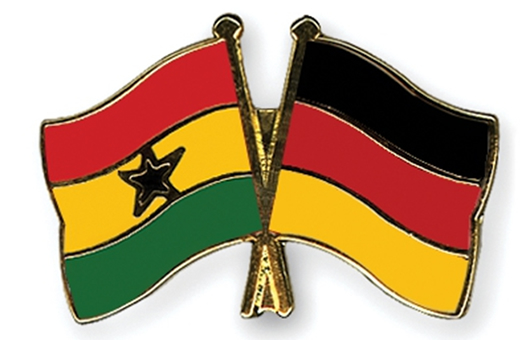
Mrs Sivine Jensen, German Ambassador to Ghana, has encouraged the global business and investing community to consider Ghana as a choice for mutual benefit.
She said Ghana’s demography and proximity to Europe amid current global economic and political development, made it “an attractive option” for doing business and investment.
“Due to the political situation in Europe and the rising challenges in the relations with China, companies are looking for alternative markets to invest in and trade,” she noted and said Ghana was a good choice.
She expressed confidence that “with the right reforms in the business landscape, Ghana can achieve its goals of prosperity and growth for all”.
The Ambassador encouraged the government to work on making the implementation of trade and investment laws attractive, particularly with tax collection.
With the coming of the second tranche of US$600 million from the International Monetary Fund (IMF), she urged the government to quickly resume all stalled infrastructure, including road networks, to facilitate doing business in the country.
Mr Ken Ofori-Atta, Finance Minister, described the over 60-year relations between Ghana and Germany as “unique,” noting that as of 2023, 3.1 per cent of Ghana’s exports to Europe went to Germany.
That, he said made Germany the eighth largest European export market for Ghana, with the Ghana Investment Promotion Authority (GIPC) also ranking it eighth among the top 10 sources of investment for Ghana.
“Amidst all the global economic uncertainty, Ghana has emerged as a new ray of hope for the African continent. Consequently, it’s become crucial to maintain this positive momentum,” Mr Ofori-Atta said.
“The need for deeper cooperation between German and Ghanaian businesses is more critical than ever… I believe that such collaboration will be the key to driving sustainable and inclusive growth,” he noted.
The Finance Minister explained that it was against that backdrop, that the discussions with the German business community were held to ensure that German companies were supported enough to champion Ghana’s economic recovery.
“I envision a future where German technology and expertise merged with Ghanaian innovation and local knowledge to create solutions that connect our economies, cultures, and peoples,” he said.
Mr Yofi Grant, Chief Executive Officer (CEO), of GIPC, said Ghana, being latitude zero and longitude zero made the country the centre of the world and, therefore, an entry point for business and trade in Africa, and the rest of the globe.
He reiterated that the enormous resources of the country [including gold, cocoa, and diamond] offered opportunities for investment, particularly in value addition, through mutual partnerships.
He stated that the implementation of reforms in the country’s investment laws would create an enabling environment for businesses to thrive and make investors gain good returns on investments in Ghana.
The discussions between the government and German business communities, he said, were critical in assessing and resolving specific challenges related to German businesses and investors.
He said Africa would soon grow by one-third of the world’s population, “so you cannot do business and not have a presence in Africa”, and urged businesses not to lose sight of Ghana – the headquarters for the Africa Continental Free Trade Area (AfCFTA).
Source: GNA























